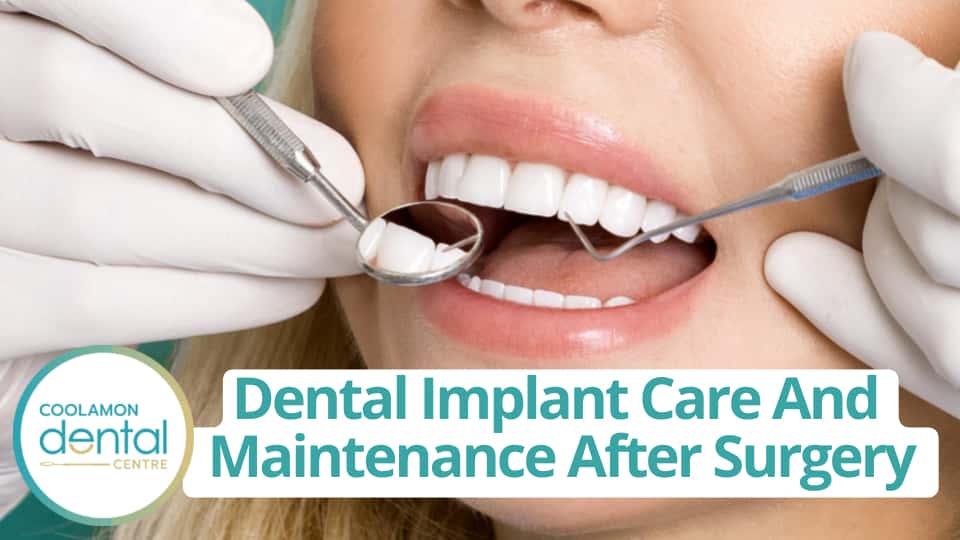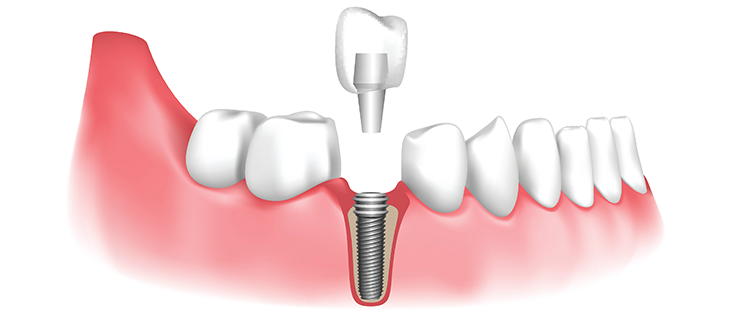
Table of Contents
Dental Implant Aftercare Tips
Avoid Taking Hot Drinks and Foods
In the initial days after dental implant surgery, it’s best to avoid consuming hot drinks and foods. Hot beverages and foods can irritate the surgical site and potentially lead to complications. Stick to lukewarm or cool options to give your implants ample time to heal undisturbed.
Don’t Rush To Consume Hard Foods
While your dental implants are in the healing phase, it’s essential to be mindful of the foods you eat. Avoid rushing into consuming hard or crunchy foods that require excessive chewing. Putting too much pressure on the implant area can disrupt the healing process and cause discomfort. Opt for softer, easier-to-chew foods during this period.
Limit Sugar Intake
Maintaining a balanced diet is crucial for optimal healing and oral health. During the recovery phase, try to limit your sugar intake. Excessive sugar consumption can contribute to bacteria growth and potentially lead to infections around the implant site. Instead, focus on nutrient-rich foods that support your body’s natural healing processes.
Follow Your Dentist’s Recommendations
Every patient’s dental implant procedure is unique, and individual healing times may vary. Your dentist will provide you with specific aftercare instructions tailored to your situation. It’s vital to follow these instructions diligently to ensure the best possible outcome for your dental implants.
Avoid Smoking and Alcohol
Smoking can hinder the healing process and increase the risk of complications after dental implant surgery. Similarly, alcohol consumption should be limited, as it can interact with pain medications and antibiotics prescribed by your dentist. Abstaining from smoking and minimising alcohol intake will promote a smoother recovery.
Stay Hydrated
Proper hydration is essential for your overall health and can contribute to a faster recovery. Drink plenty of water throughout the day to help your body heal efficiently. Avoid excessive consumption of caffeinated and sugary beverages, as they can lead to dehydration and potentially impact the healing process.
Be Gentle with Oral Rinsing
Rinsing your mouth after meals is a good practice, but it’s essential to be gentle, especially around the implant area. Use a mild, alcohol-free mouthwash or plain saltwater rinse as recommended by your dentist. Avoid vigorous swishing, as it may disrupt the healing process.
Attend Regular Follow-up Appointments
Keeping up with your scheduled follow-up appointments is vital to monitor your progress and ensure your dental implants are healing correctly. These visits allow your dentist to address any concerns promptly and make adjustments to your aftercare plan if necessary.
Dental Implant Maintenance
First 24 Hours
- Avoid eating hot and spicy foods on the first day, switching to cold and soft foods like ice creams or yoghurts.
- Make sure that you do not smoke within the first hours.
- Use a gauze or tea bag to stop bleeding from the surgical site.
First 7 days
- Use ice packs to alleviate any swelling or bruising, targeting the insides of your mouth with popsicles, ice creams and the outside with ice wrapped in a towel.
- Switch to heat three days after the surgery to reduce the swelling.
- If you experience pain, take some over-the-counter pain relieving medications to solve that.
After Surgery – 3 To 6 Months
- Keep to your scheduled appointments during these months so your dentist can monitor the healing.
- You may be able to start eating normal foods, but this should be when your dentist gives you the green light.
- Continue to practice good oral hygiene even after the implants have integrated with your jawbone.
Dental Implant Care After Surgery
You may experience several side effects after the completion of your dental implant surgery. Some of these are:
Bleeding
It is normal to experience bleeding after your dental implant placement. It will typically range from light to heavy in the first 3 days. Your dentist will insert gauze in your mouth to stop the bleeding after the procedure.
If bleeding persists, your dentist may give at-home instructions to use the gauze. In major cases of bleeding, you should hold a tea bag in the area to reduce it. If it continues, then it’s time to call the dentist.
Swelling
Swelling is another highly expected symptom after a dental implant procedure is completed. And it doesn’t pair very well with dental implants and should be combatted.
You can wrap an ice pack in a small hand towel and place it for 15 minutes on the area and 15 minutes off. However, after three days, cold won’t do much for you, so you would need to switch to heat with the same daily routine.
Pain
Pain is another after-effect that is very common with dental implants. Thanks to the anaesthetic or sedative medication your dentist will administer, you won’t feel any pain during the surgery.
However, you will begin to feel slight pain afterwards. The good thing is that you can easily alleviate this pain with the painkillers you normally take. Ibuprofen, Tylenol or Paracetamol would work just fine.
Diet
The food you eat after the surgery and for the next couple of months play a major role in the long-term success of your dental implants. You want to give your mouth enough rest in the first few weeks, which means eating solely soft foods like soup, protein shakes, yoghurt, etc.
You should avoid foods that are hot on temperature, spicy, and have tiny seeds. These can irritate the area, and you don’t want that. Also, avoid carbonated drinks as they could lead to dry sockets, which get very painful.
Antibiotics
Your dentist will likely prescribe you some medications, including antibiotics, before your dental implant procedure. So, you will likely have begun taking them before the surgery.
Don’t stop the medications of your accord, and don’t hesitate to contact your dentist with any questions.
Oral Hygiene
You should maintain an optimum level of oral hygiene after your dental implant placement. Use a soft-bristled toothbrush and a non-abrasive toothpaste to regularly clean the areas of your teeth that surgery was not performed on.
You can start using a Waterpik to remove debris underneath your dental implants three days after the surgery. Your dentist will also recommend a floss that will work to clean underneath your dental prosthesis.
Activity
You should stay away from rigorous activity for at least 48 hours following your dental implant procedure. The sedatives used for the procedure may still be in your body for those first few hours and could hinder your coordination during strenuous activities.
It’s best to avoid the activities unless instructed otherwise by your dentist. Another effect the activities can have is that the stress may tear any sutures or stitches in the surgical site, which is not good.

FAQ
Do Implants Require Regular Maintenance After Placement?
Dental implants must be properly maintained after the surgery through the years you use them. Your dentist will schedule you for routine checks where they do thorough maintenance for the implants.
How Long Does Tooth Implant Surgery Take To Heal?
The healing period for dental implants typically ranges anywhere from 3-6 months to heal properly.
When Can I Brush My Teeth After Dental Implant Surgery?
You can start brushing your teeth the same day you get your dental implants placed. Just make sure to avoid the surgical site when brushing.
How Do I Keep My Dental Implants Clean?
Your implants can be kept clean by brushing and flossing regularly as you would for your natural teeth. You may also use a Waterpik to ensure you get all the debris and food particles out.
How Long Does Pain Last After Dental Implants?
Pain will last from 3 days to a week after the dental implant placement. Although, this can vary as per your particular procedure.
Related articles:
